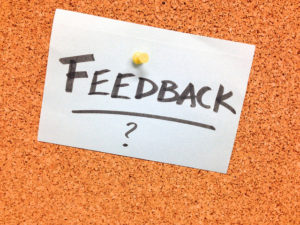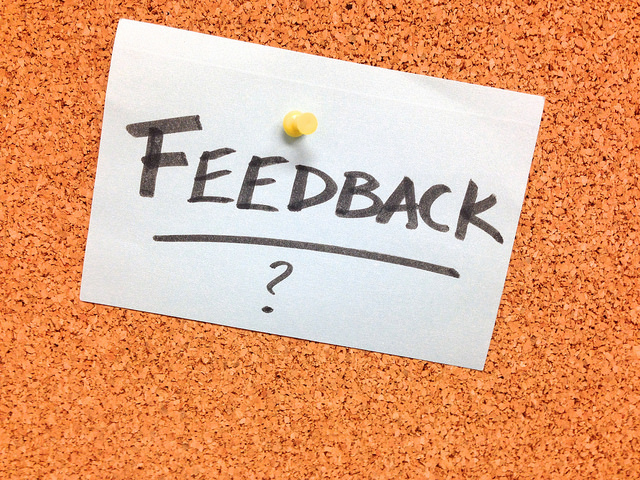
Our experience in this world is one of feedback.
We do something, then something happens. Do we like what happened or not? That’s feedback.
We say something, and other people say something in return. Others even say something about what or how we said what we said. That’s feedback.
We’ll always get it.
How then to accept feedback, and make the best use of it?
Listen to what is, not what you perceive it to be
What we believe, is what we see.
If I have already judged you unworthy of judging me, either because of your information (or lack thereof), credibility, or just plain “you-don’t-know-me-or-this!!”, then I won’t listen to you.
I’ll just label you as my basher, and furiously defend myself from the onslaught of your feedback.
Because I feel it will reflect poorly on me, not only on my work, but me as a person.
I tend to blow things out of proportion, and if I want to be able to take feedback, and use it to my advantage, I have to learn how to just see and take the feedback first, for what is, and not how I perceive it to be.
There are facts about what happened, what I did, and their result. That is separate from the judgement on my abilities, personhood, and potential – all of which are perceptions that might not be present in the first place.
Maybe, all just in my head.
Take the feedback for the facts, and for what it is first, then figure out how it can help you.
How can I use this?
Because everything is gift, and that which we believe may stand in our way, may turn out to be what enables us to succeed.
I read from Ryan Holiday’s “The Obstacle Is The Way”, that it is those which stand in our way, which then serve to instruct us on how to move forward.
How can I use this feedback, this seeming obstacle, or judgement, to then move forward?
Younger, I was judged as awkward, with no confidence. That then spurred me to get comfortable and better at speaking in public.
My doctors told me that I would not be doing heavy exercise because of my lower back. I found ways to rehab and strengthen, and continue to build a stable core.
Now, I want to get healthier, but I’m experiencing shoulder pain from pull-ups and other arm over head activities. I could dismiss this as feedback that I never was going to be a jock in the first place, but I asked the question “How can I use this?”
What this tells me, is that I still have more knowledge and experience to accumulate to take better care of myself, and that I have to spend more time, energy, and resources, to meet the higher standards that I have set for myself.
How can I use what feedback I get, to move forward?
Thank you, thank you, and thank you
Because without gratitude, there is no letting go.
Because without gratitude, there is no acceptance.
Because without gratitude, I would always be chained to the past feedback, and judgements that I have received in the past.
I’d be furiously be wanting to prove myself, and I’d always have the proverbial chip on my shoulder, always sensitive, and ready to defend myself.
The moment I started to become more thankful, was the moment I started to loosen up.
I didn’t take myself as seriously as before, and I allowed myself to make mistakes.
We are all works in progress, and those who believe that they are set for life, won’t be able to move forward form feedback, nor from gratitude.
Would you be thankful for the obstacles, and observations of other people?
I would. At least other people care enough to tell me how something I did impacted their lives.
Thank you, thank you, and thank you.
Use feedback for what it is
To tell you how to improve
To tell you what you can start doing
To tell you what to continue
And maybe, to tell you what you need to stop doing, as well.
Take the feedback that you can get, and use it to move forward.
How else can you use the feedback that you receive? Please share in the comments below!

Leave a Reply